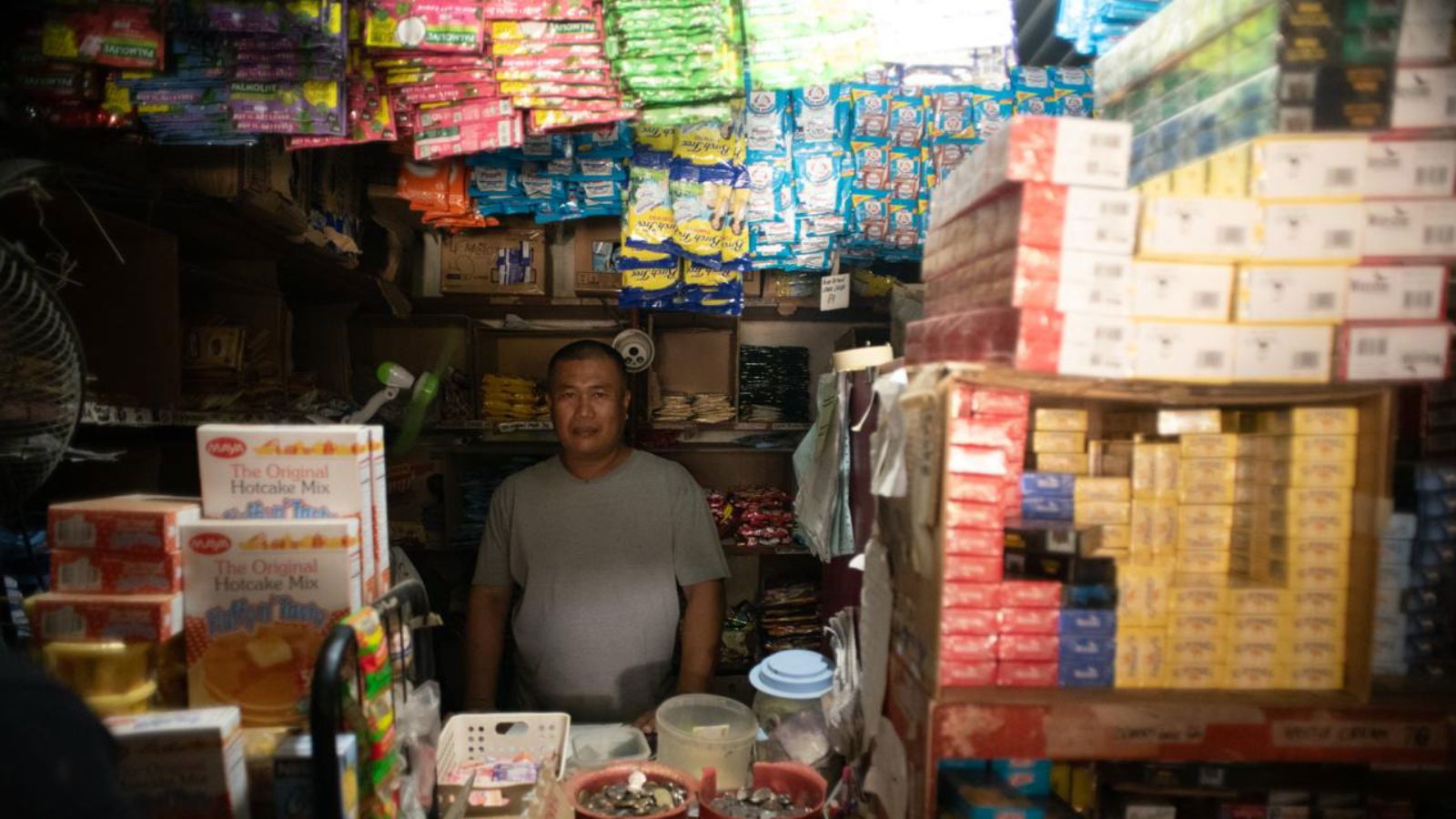
Study: Cigarette and alcohol sales fall in sari-sari stores as Filipinos tighten belts
share on
Sales of cigarettes and alcohol in the Philippines' ubiquitous sari-sari stores dropped significantly in 2024, according to new data from tech startup Packworks. Rising inflation and elevated excise taxes are believed to have dampened consumer spending, leading to a downturn in purchases of the products.
Drawing on transaction data from over 300,000 sari-sari stores via its mobile app and business intelligence platform Sari IQ, Packworks observed steep declines in the sale of products such as Marlboro, Mighty, and Winston cigarettes, as well as popular alcoholic beverages such as Tanduay rum and Emperador brandy.
The study revealed that the combined gross merchandise value (GMV) of the three tracked cigarette brands fell by 22% year-on-year to 392 million pesos (US$6.9 million), down from 503 million pesos (US$8.8 million) in 2023. Mighty saw the sharpest drop at 25%, followed by Marlboro at 24%, and Winston at 8%.
Don't miss: Jobstreet by SEEK showcases real stories of career success in new PH campaign
These figures come despite the Bureau of Internal Revenue reducing the floor price per cigarette pack from 114.60 pesos (US$2) in 2023 to 78.58 pesos (US$1.4) in 2024 under Revenue Regulations No. 016-2024. Yet the relief was not enough to offset broader economic pressures. According to the Philippine Statistics Authority, annual inflation stood at 3.2% at the end of 2024.
On the alcohol front, sari-sari stores reported a 17% year-on-year drop in Tanduay rum sales to 102 million pesos (US$1.8 million), while Emperador sales plunged by 22% to 49 million pesos (US$858,900).
Store owners say their customers are struggling
"Dahil po nagtaas ang presyo ng ibang rum at dahil po siguro sa hirap ng buhay," said Anabel Desuyo, who runs a sari-sari store in Negros Occidental. ("Because the price of rum has increased, and perhaps because of the difficult economic situation.")
Anita Lagtapon, a shopkeeper from Sarangani, shared similar thoughts: "Hindi na ako nagbenta (ng cigarettes), mataas na ang presyo." ("I don't sell cigarettes anymore, the prices are too high.")
Packworks' chief data officer Andoy Montiel said the shifting sales patterns may be linked not only to external conditions but also to evolving consumer behaviour.
"Our tracking data of 12 consecutive months indicate a significant shift in purchasing trends within the sari-sari store sector for cigarettes and alcohol products, which can be due to various external factors such as rising prices and supply issues, but might also be a precursor to changing internal consumer behaviors and preferences," Montiel said. "This analysis could be used to inform regulatory governance and demand planning for our market."
Taxation continues to play a large role. Under Republic Act No. 11346, which came into effect in 2019, tobacco products are subject to annual increases in excise duties. As of 2024, cigars are also indexed with higher rates, rising from 4% to 5% specific tax on top of a 20% ad valorem tax. Alcoholic spirits like rum, meanwhile, are taxed under Republic Act No. 11467, which imposes a 22% ad valorem tax plus annual adjustments on specific taxes.
Despite the downturn, Packworks remains optimistic about the role of its platform in empowering store owners through access to real-time data and digital tools.
"With our wide sari-store base, we can take timely pulses of consumer activity at the grassroots level, revealing unique insights into selling and buying patterns of Filipinos," said Packworks CEO Bing Tan. "For our sari-store users we provide real-time information on the movement and offtake of their inventory giving them intelligence to better manage and plan for their small businesses – especially during these times of fluctuating market conditions."
Packworks' Sari IQ tool is part of a wider initiative to modernise small-scale retail in the Philippines, allowing store owners – many of whom are women – to access analytics that were once the domain of large corporations.
Founded in 2018, Packworks started as a passion project by Tan, Ibba Bernardo, and Hubert Yap, who saw the need to digitally empower neighbourhood store owners during their travels delivering solar panels to remote regions.
From a tool used by a few multinational partners, Packworks has grown into a B2B platform serving stakeholders across the entire retail supply chain. The company now plays an active role in fostering digital inclusion among the country's estimated one million sari-sari stores.
Related articles:
Report: Western Visayas leads 62% growth in sari-sari store transactions
Study: 90% of women sari-sari store owners balance business and family in the Philippines
HK district councillors call for stricter measures over illicit cigarette ads
share on
Free newsletter
Get the daily lowdown on Asia's top marketing stories.
We break down the big and messy topics of the day so you're updated on the most important developments in Asia's marketing development – for free.
subscribe now open in new window
